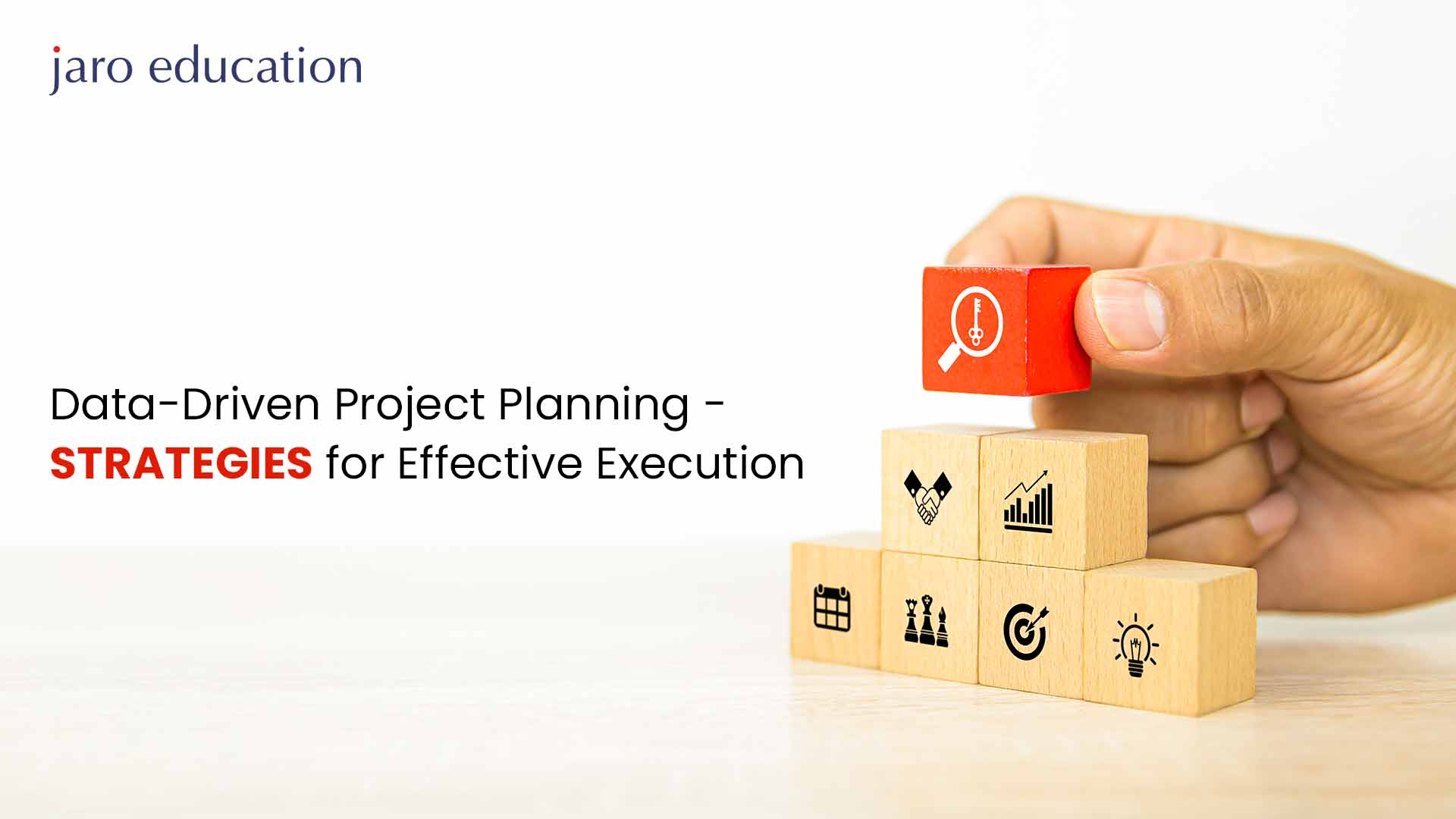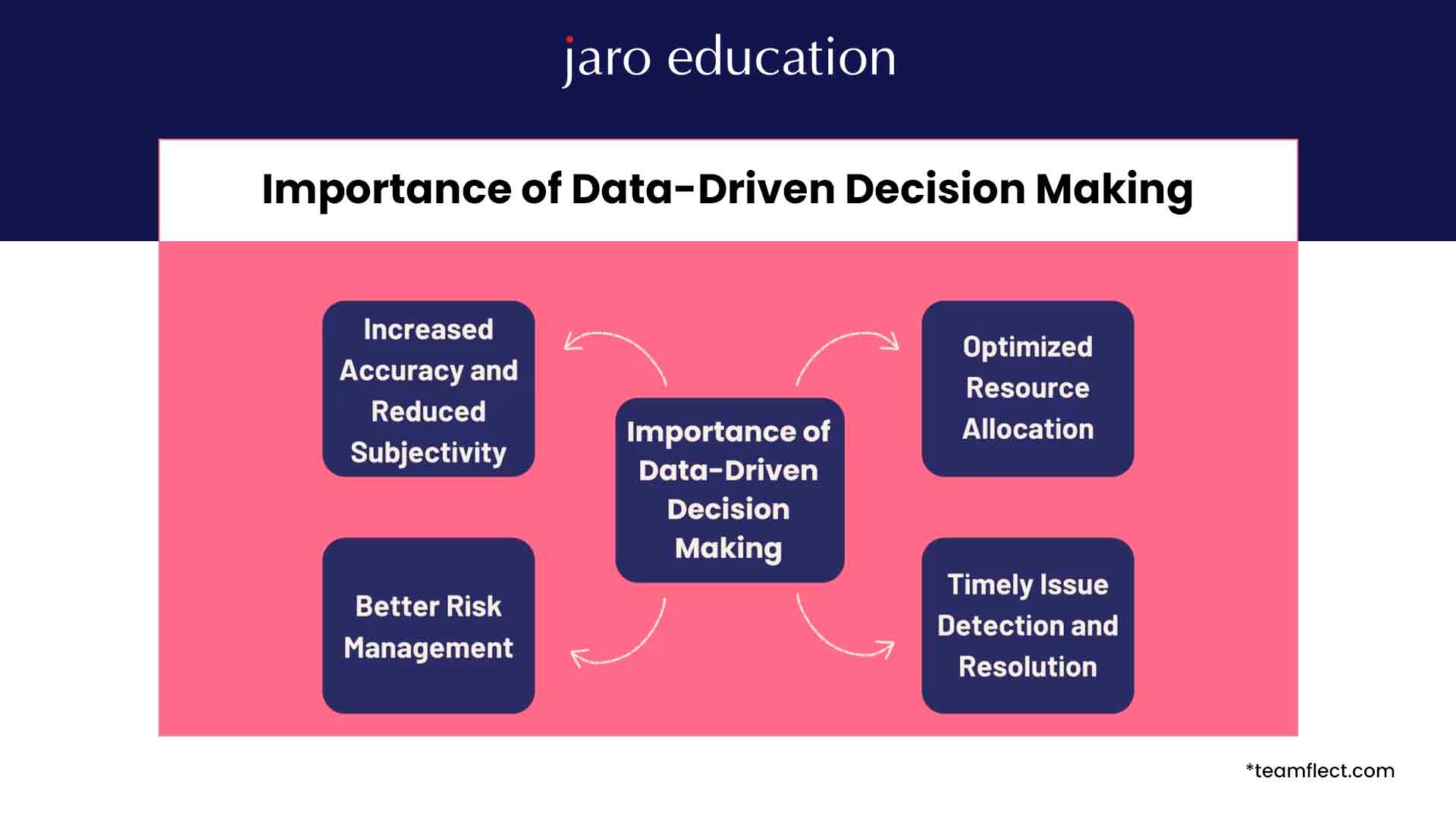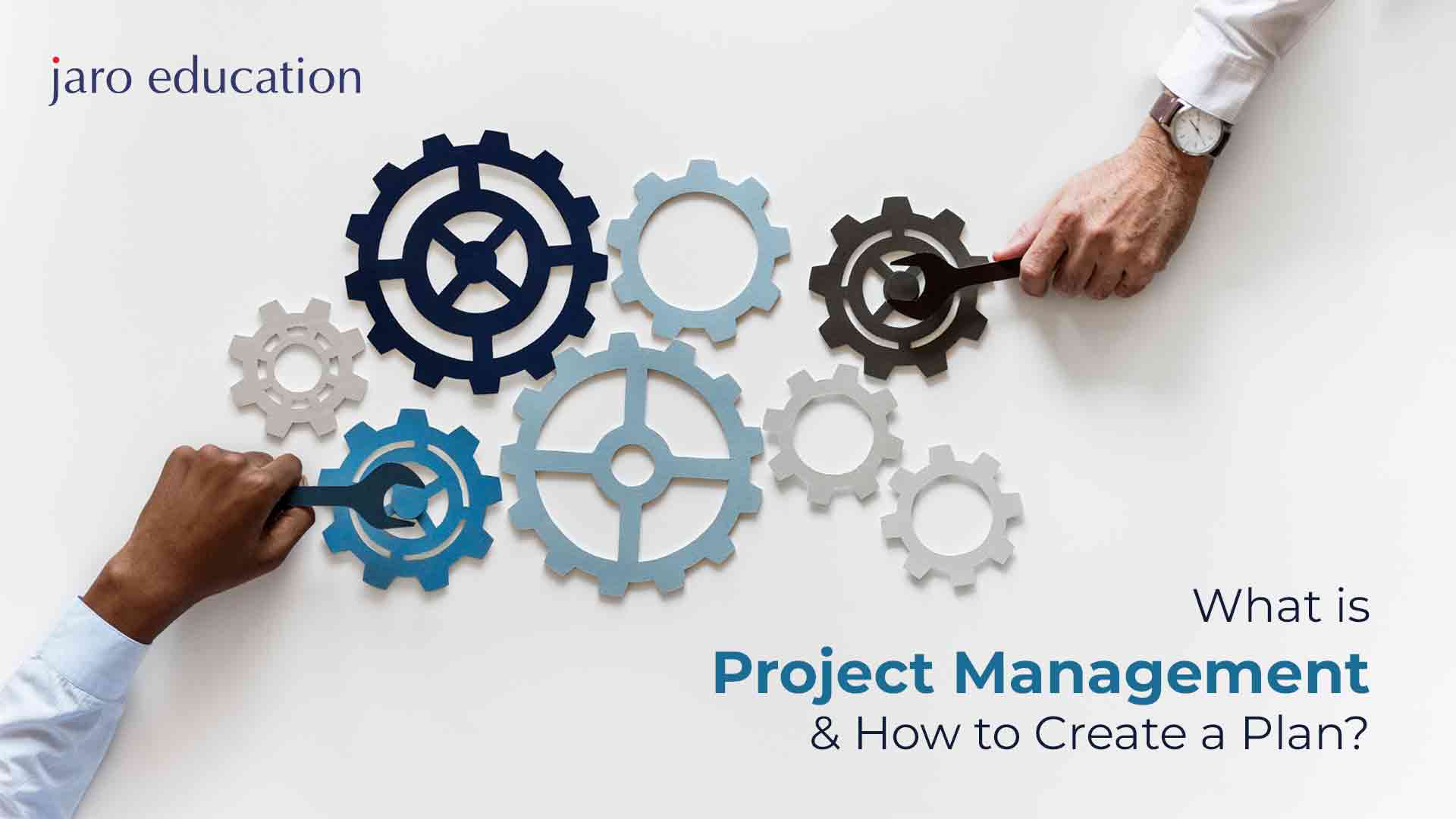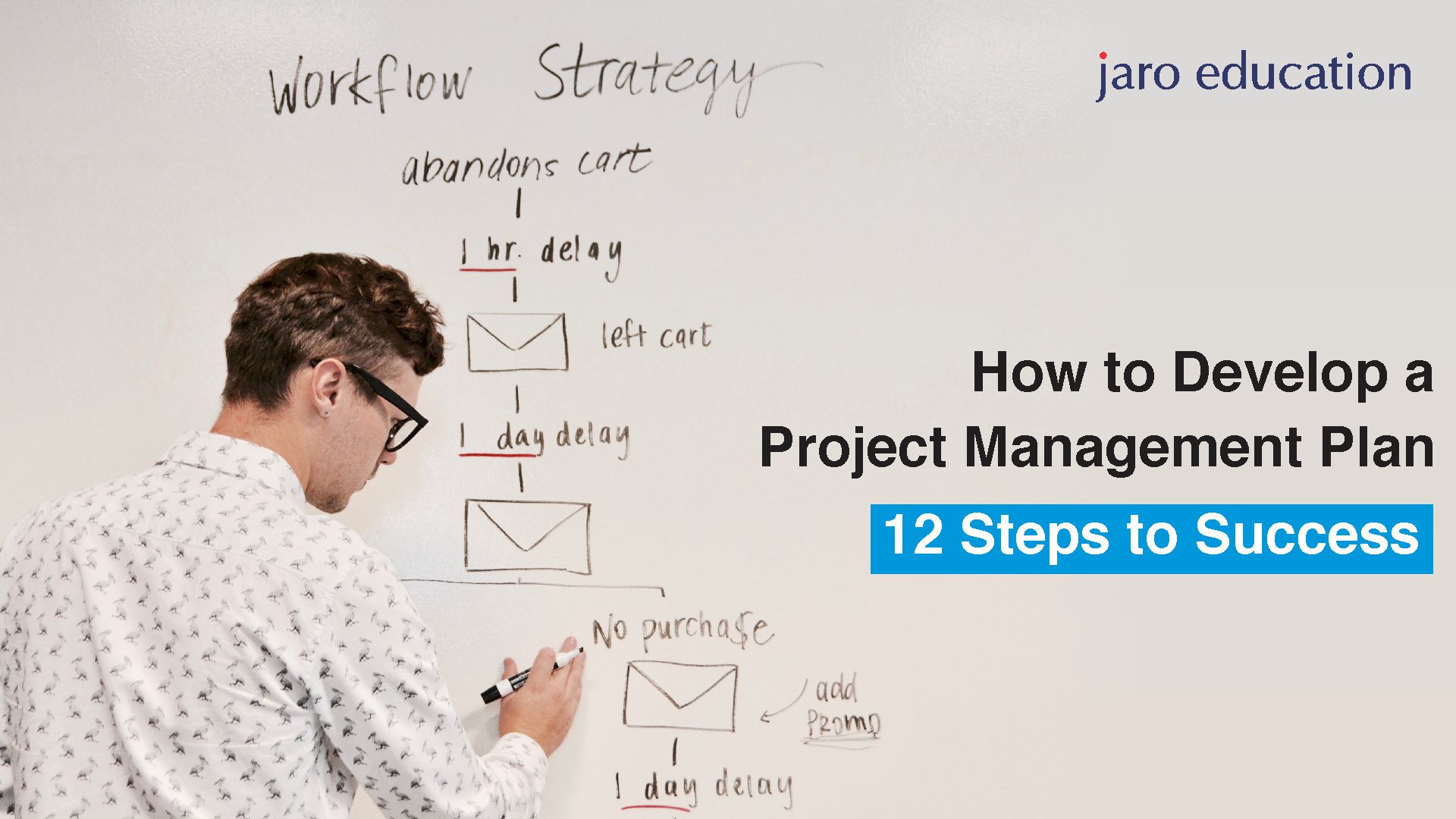
Project planning is an important component of project management that focuses on developing an in-depth plan describing the resources and steps required for achieving the project’s objectives, such as developing a timeline, defining the project’s scope, setting up a budget for the project and assigning resources and tasks. The process of project planning is interactive, and as the project progresses, the plan may need to be adjusted. Thus, it is critical to update and evaluate a project plan regularly to ensure it meets all of its objectives while being on the right track.
Since the business environment has become fast-paced, companies demand rapid project planning. To achieve that, it has become imperative for the project managers to use advanced analytics, such as machine learning to optimise project planning, resource allocation and scheduling. However, to acquire knowledge about data-driven project planning, professionals can pursue the Executive Certificate in Advanced Project Management and Analytics course from IIM Mumbai. This program addresses the urgent need to learn how to manage projects within a given time and budget using advanced analytics skills. Contact Jaro Education to learn more about this course.
Importance of Data in Project Management
Companies these days try their best to deliver their projects on time and on budget, maintaining the highest quality. However, managing everything manually can be time-consuming and expensive. In such a scenario, project managers consider a data-driven approach to managing projects. With data-driven insights, project managers no longer have to track their team’s performance every now and then, and they can focus on creating effective project plans for the future. Furthermore, team members can also collaborate on a single dashboard to discuss elements of the project. Besides that, project managers can get data-driven insights into the risks and complexities associated with a particular project for making informed decisions. With teams, they can form effective project management strategies that would help them make a project a success and thus maintain the reputation of the company.
Project Management Strategies for Effective Execution Using a Data-Driven Approach
It requires more than a brilliant concept to effectively manage, complete, and fulfil the project’s strategic goals. Project management strategies aid the entire process from beginning to end, resulting in superior final outcomes. Here are some project management strategies using a data-driven approach that can help the project managers manage projects efficiently.
Measure Success of the Project
The success of a project is defined by the aims and objectives that it achieves, but there are a few more elements to consider when determining whether or not it has done so. Here are 6 metrics that measure the success of a project.
- Scope – Whether the anticipated outcomes are achieved or not.
- Schedule- Whether the project deadlines are met or not.
- Team Satisfaction– Whether the team is happy about the outcome or not.
- Budget– If the project is completed within the predefined budget or not.
- Customer satisfaction– Whether customers are happy with the final results or not.
- Quality– If the quality matches the stakeholder’s expectations or not.
Setting up project success criteria and writing sensible goals are two things that you can’t develop the project without and accomplish it effectively. So, take your time, go through these strategies, and then consider using any of them.
Table of Contents
Build an Effective Team(s)
Building the right team is one of the crucial strategies for effective project management. Since everyone doesn’t possess the same qualities, it is important to carefully pick members for a project whose quality aligns with the project requirements, which can be easily done with the power of AI. Then, keep the project demands in mind and assemble a team of individuals that can align with the unique project objectives.
Analyse the Uncertain Risks
There are potential risks associated with every project onboard. Project managers shall understand that beforehand so the project is not affected badly. After the risks are identified by the project manager, teams must conduct a risk analysis prior to the project’s start to identify future risks and remedies using data-driven insights. When managers are aware of the potential dangers from the beginning, they can control and prevent them from occurring.
Draw Project Outlines Before Commencement
This project management method, which is frequently undervalued and ignored, may go a long way. Before the beginning of a project, project managers must finalise all the specifics, lay out all of the plans, and describe all of the team members’ varied roles and duties. However, project managers don’t need to monitor each employee’s daily job if they are aware of plans and specifics and know what they are expected to do, if managers have kept them well-informed at the beginning of the project. Nowadays, project managers can use data-driven insights to create a layout for a particular project and can work on it accordingly.
Set Achievable Goals and Monitor Progress
Projects frequently fall behind schedule when they lack precise and quantifiable objectives. Setting goals divides a project into phases, making tracking progress easier. This procedure keeps project managers informed of any concerns or obstacles that emerge while also ensuring that each phase is completed effectively.
Assign the Project Tasks in Sprints
This project management strategy allows all team members to do one work at a time. For example, in one sprint, the entire team will write a code, and in another sprint, they will all be testing the code. Yes, not everyone working on the same project will have the same skills and talents. However, project managers can borrow the idea and adapt it to the project. Setting aside distinct periods for different activities and chores that need to be performed in a day is a sensible thing to do – managers can also let the team decide what to do first and avoid conflicting thoughts.
Communicate Clearly with Team Members
Communication can either make or ruin a project. When in-person communication and cooperation are not feasible, internet solutions like collaboration software helps to keep the flow of discussions, comments, and ideas going. Remember, efficient communication not only increases production but also aids in the prevention and resolution of problems.
Avoid Micromanagement of Team Members
It is not a good idea to micromanage staff. As a project manager, even if you’re inclined to do it in good faith at times, don’t. Standing over someone’s shoulder, scrutinising every move they make, is ineffective and distracts from the successful execution of a project. Employees who are micromanaged frequently freeze and panic, resulting in high levels of stress and even blunders. So, rather than being a micromanager, strive to be a leader. Build trust in your team through maintaining communication and two-way feedback. If you believe that someone in the team is not on the right track, instead of breathing down his neck, don’t start a debate, offer your ideas, and work together to find the best answer.
Establish a Sense of Accountability
Every person in the project should be assigned distinct tasks, and everyone should be held accountable for their performance. But how can one create and sustain an accountability culture? Project managers should learn to admit to meeting their own obligations and admit their mistakes first (if they make any). Also, they should allow for feedback and train staff about accountability and make them understand that a culture of accountability is about taking responsibility for actions, comprehending the repercussions, fixing the problem, and learning from mistakes, not pointing fingers.
Conduct a Thorough Evaluation
Even after using every project management strategy, at some point, project managers may fail. That is why it is critical to examine each project once completed as insights of this evaluation will not only help to evaluate a particular project but can also be used for future projects. Furthermore, project managers should make a list of areas for improvement and keep an eye out for places and stages in the process when something goes wrong. What can they do to prevent making the same mistake again? When project managers have the answers to these questions, they will be able to fine-tune their project management procedures and build better practices for future projects, and with data-driven insights, this becomes easier.
Importance of Data-Driven Project Planning
In today’s world, where everything is technology-driven, project managers are also relying on data to make informed decisions with minimum error. A data-driven approach to project management has various advantages. These are:

Helps to Identify Risks and Monitor Progress
Data may assist project managers in tracking their project’s progress towards its objectives and identifying possible threats, which in turn, can help respective teams in making necessary changes to their strategy to keep their project on schedule.
Assists in Making Improved Decisions
Data may assist the project in making better project decisions. Team members may use data, for example, to evaluate multiple approaches to an issue or to choose the best course of action for their project.
Better Communication with Stakeholders
Data may help organisations to enhance communication with stakeholders by giving clear and simple information about the status of your project. This can aid in the increasing of trust and confidence among stakeholders, which is critical for project success.
Conclusion
Data-driven project management is becoming more popular in the project management industry. As more data becomes accessible, project managers will be able to utilise it to make better decisions and increase project success.
If you’re interested in becoming a project manager and learning about advanced project management analytics, IIM Mumbai offers an Executive Certificate in Advanced Project Management and Analytics course, which can be best-fitted for you. This 7-8 month industry-centric online program provides aspirants with the necessary knowledge, tools, skills and techniques to excel in project management and meet stakeholders’ expectations. Furthermore, you will get hands-on sessions on different project management software and opportunities to work on real-life industry projects.So, what are you waiting for? Enroll today!









